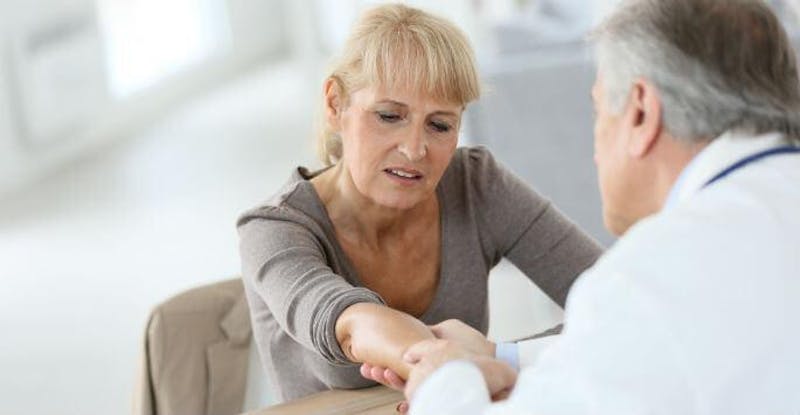
Skin cancer screenings involve a visual inspection of the patient’s skin. They are conducted by a well-trained dermatological expert and they do not involve blood work. A typical screening takes about 10 minutes.
What Happens During a Skin Cancer Screening?
Our skin cancer screenings are done in a private setting in our office. During the screening, the medical professional will be able to examine the patient’s whole body. The patient will fill out forms concerning their medical history, demographic information and reasons for undergoing the screening.
The medical expert will examine the patient and make note of any suspicious-looking moles or lesions. If they find anything, they will tell the patient and make their recommendations, such as whether or not the patient should get a biopsy.
Why Should Somebody Go to a Skin Cancer Screening?
Skin cancer is the most common cancer in the United States. Roughly 20 percent of Americans develop skin cancer at some point in their lives. Over 8,500 people in the United States are diagnosed with skin cancer every day.
The two most common skin cancers, basal cell carcinoma (BCC) and squamous cell carcinoma (SCC), both have a cure rate of around 95 percent if they are caught early. Melanoma is the deadliest skin cancer, but it also has a high cure rate – providing it gets caught before it metastasizes.
Melanoma is the fifth most common cancer in men and the seventh most common cancer in women. It should also be noted that skin cancer screenings are for skin cancer only.
How Can People Prevent Skin Cancer?
Skin cancer is caused by exposure to ultraviolet, or UV, rays. Since the sun and tanning booths produce such rays, people need to limit their exposure to them. They should not use tanning booths at all, and they should avoid the sun during the midday and early afternoon when its rays are at their most intense. They should also use sunscreen whenever they are outside, even on cloudy days.
Who Offers Skin Cancer Screenings in Lawrenceville?
Many medical facilities offer skin cancer screenings; however, at the Center for Dermatology in Lawrenceville, we go the extra mile by also providing patients with prevention and detection tips, as well as a variety of treatment options. Our team of medical professionals is committed to helping patients make skin cancer a thing of the past. Contact us today to schedule your appointment for a skin cancer screening. Remember, early detection could save your life.

